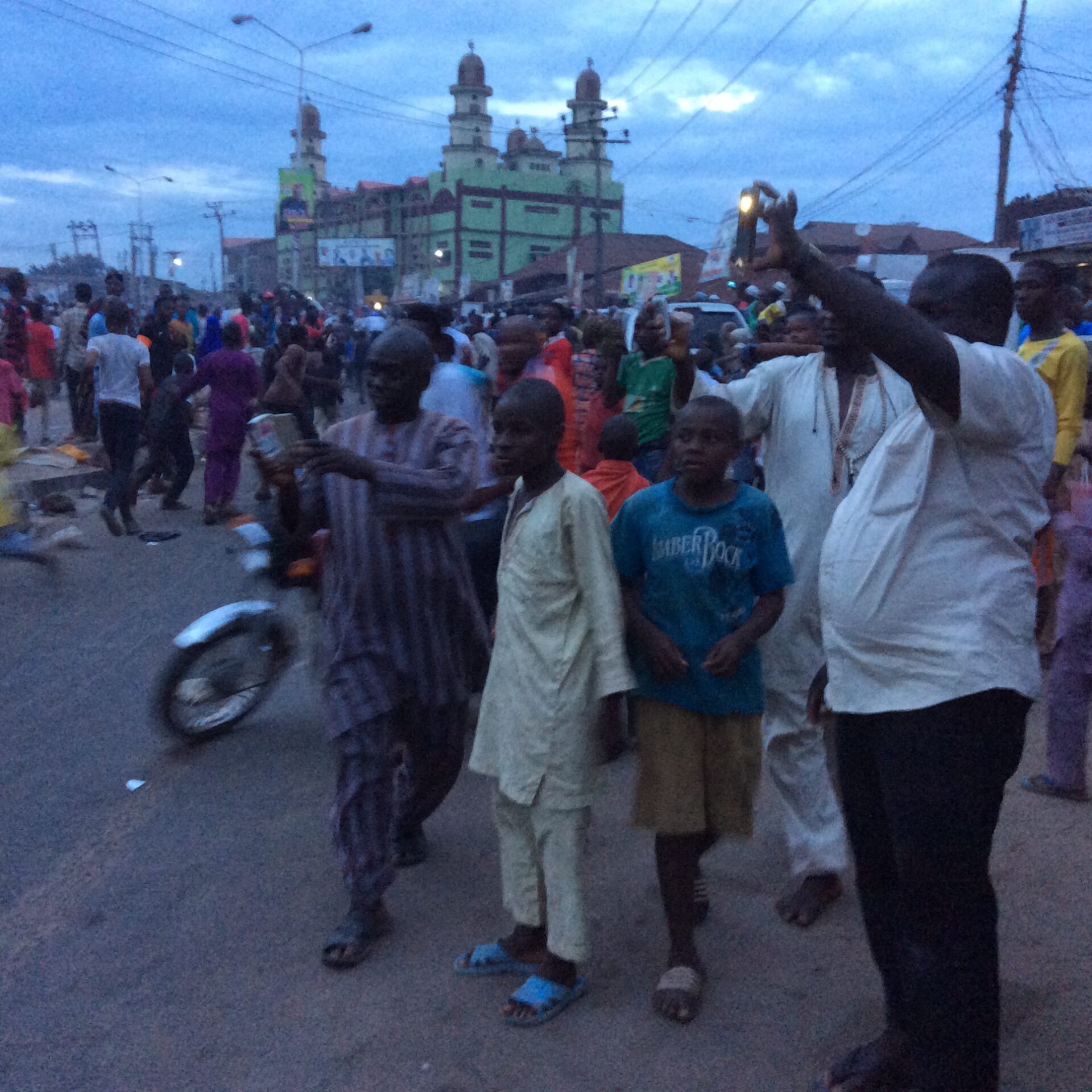Nigeria is facing a pretty severe slowdown because of what has happened with the oil shock because of its oil-dependent economy and consumption of import-dependent.
The oil and gas sector accounts for about 35 percent of Nigeria’s gross domestic product and petroleum exports represent over 90 percent of total exports revenue, according to the Organization of the Petroleum Exporting Countries (OPEC).
Since oil prices started their 50 percent slump last June, the Nigerian Naira has fallen by around 22 percent against the U.S. dollar.
The World Bank sees Nigeria’s economic growth slowing to 5.5 percent in 2015 from 6.3 percent in 2014.
Doubts over the economic policies of current president, Goodluck Jonathan, mean his re-election is uncertain, despite the benefits of incumbency, said Alan Cameron, economist at Exotix Partners, a frontier market boutique investment bank.
“It is widely acknowledged that he hasn’t run the economy very well. It has dented his popularity,” Cameron told CNBC on Monday, adding that if oil prices was still around $110 per barrel he would probably get re-elected. Brent Crude is currently trading around $55 per barrel, however.
“I think there has been an acknowledgement that he hasn’t performed very well and that has been highlighted by the fact that oil prices are down, the stock market’s down, the currency’s been devalued,” he added.
Tim Drinkall, who leads investing for Morgan Stanley Investment Management’s Frontier Emerging Markets Portfolio, said he remains cautious on Nigeria despite what he said was a positive election.
“Regardless of the election result, the country faces tightening fiscal and monetary policy due to the collapse in oil prices and the lack of savings over the past decade,” Drinkall noted in an email. “The elections are now past, but tough decisions on the economy remain ahead.”
Oil is by far Nigeria’s most important export and prices have fallen more than 50 percent in the past year.
His Morgan Stanley fund portfolio includes three major Nigerian stocks as of Feb. 28: Guaranty Trust (a major African financial services player), Nigerian Breweries (a dominant regional beer maker owned byHeineken) and Zenith Bank (another large financial sector business).
While Nigeria is the largest economy in Africa, the country’s financial markets are tiny. The market capitalization of the Nigerian Stock Exchange is about $60.9 billion; by comparison, it’s $28 trillion for the New York Stock Exchange.
Another major risk to Nigeria remains a religiously radical, bloody insurgency in the north of the country.
Terror attacks by Islamic extremist group Boko Haram have threatened the country’s stability for years and Buhari—himself a Muslim from northern Nigeria—was elected in large part to deal with the issue. About 50 percent of Nigeria’s nearly 178 million people are Muslim; some 40 percent are Christian.
FRENCH VERSION
Le secteur de pétrole et gaz représente environ 35 pour cent debrut domestique produit et pétrole exportations représentent du Nigéria plus de 90 pour cent du total des exportations revenu,selon l’organisation de la pays exportateurs du pétrole (OPEP).
Étant donné que les prix du pétrole ont commencé leuraffaissement de 50 pour cent en juin dernier, le Naira nigérian achuté de près de 22 % face au dollar américain.
La Banque mondiale voit la croissance économique du Nigériaralentir à 5,5 % en 2015, passant de 6,3 % en 2014.
Doutes sur la politique économique de l’actuel Président,Goodluck Jonathan, signifient que sa réélection est incertaine, en dépit des avantages de titularisation, a déclaré Alan Cameron,économiste chez Exotix Partners, une banque d’investissementmarché frontalier.
“Il est largement reconnu qu’il n’a pas très bien fonctionnerl’économie. “Il a ébranlé sa popularité, Cameron a déclaré CNBClundi, ajoutant que si les prix du pétrole était encore environ 110 $ par baril qu’il le ferait probablement se faire réélire. BrentCrude se négocie actuellement autour de 55 dollars le baril,cependant.
« Je pense qu’il y a eu une reconnaissance qu’il n’a pas joué trèsbien et qui a été mis en évidence par le fait que les prix dupétrole sont en baisse, la bourse vers le bas, que la monnaied’été dévaluée », a-t-il ajouté.
Tim Drinkall, qui dirige à investir pour Frontier Emerging MarketsPortfolio de Morgan Stanley Investment Management, dit qu’ilreste prudent sur le Nigeria en dépit de ce qu’il dit, c’était unchoix positif.
Quel que soit le résultat des élections, le pays est confronté,resserrement de la politique fiscale et monétaire en raison del’effondrement des cours du pétrole et le manque d’épargne ces dix dernières années,” Drinkall a noté dans un message électronique. « Les élections sont maintenant passées, mais desdécisions difficiles sur l’économie restent à venir. »
L’huile est de loin plus important Nigeria à l’exportation et lesprix ont baissé de plus de 50 pour cent l’an dernier.
Son portefeuille de fonds de Morgan Stanley comprend troisprincipaux stocks nigérians à compter du 28 février: GuarantyTrust (un joueur majeur de services financiers africains), NigerianBreweries (un fabricant de bière régionale dominanteappartenant byHeineken) et la Banque Zenith (une autreentreprise du secteur financier grand).
Alors que le Nigeria est la plus grande économie en Afrique, lesmarchés financiers du pays sont minuscules. La capitalisationboursière de la bourse nigériane est environ $ 60,9 milliards ; parcomparaison, c’est $ 28 billions pour la bourse de New York.
Un autre risque majeur au Nigeria reste une insurrection religieuxradicale, sanglante dans le nord du pays.
Attentats terroristes par groupe extrémiste islamiste Boko Haramont menacé la stabilité du pays pendant des années et Buhari — lui-même un musulman du Nord du Nigéria, a été élu en grandepartie à régler la question. Environ 50 pour cent de près 178millions de personnes du Nigéria sont musulmans ; environ 40pour cent sont chrétiens.


